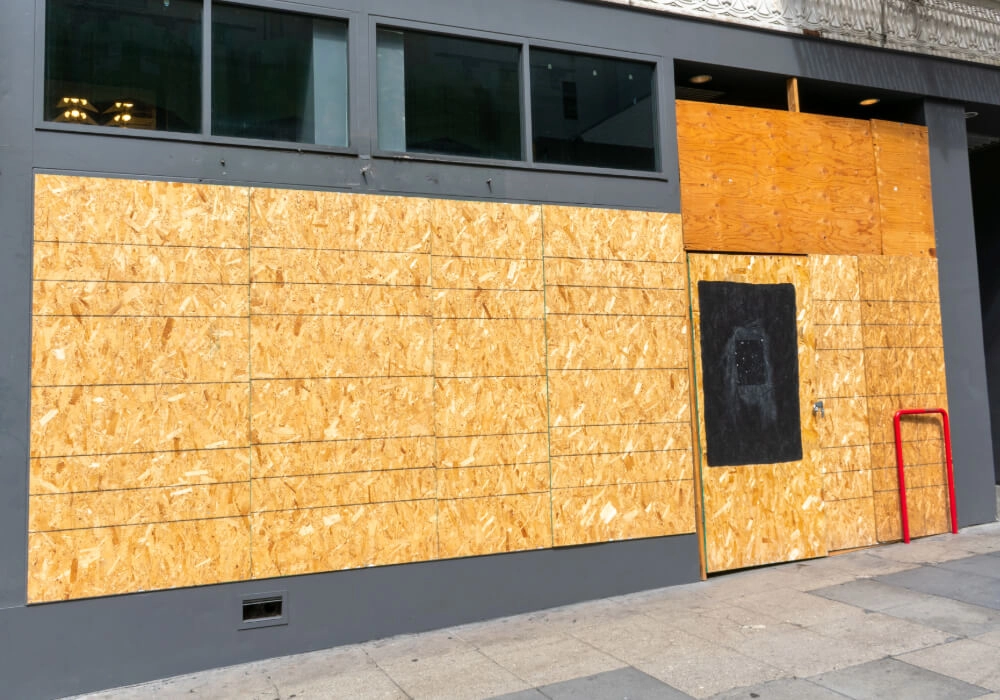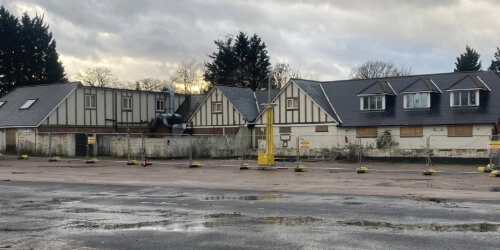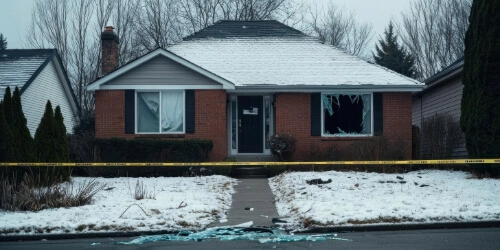Insurance may not seem important, until you need it. Vacant properties face heightened vulnerabilities, making it vital for you to take preventative action to protect it such as, implementing vacant property insurance.
Why is Insurance Coverage Important on a Vacant Property?
According to the most recent government statistics, as of November 2023, there were 261,189 long-term empty properties in England, which was a 5% increase from the previous year.
This has been a continuous increase on previous years, meaning the importance in understanding vacant property insurance requirements is crucial as more and more properties transition to this property type across the UK.
Overall, like with any other insurance, it helps in cases where an incident has occurred and your property requires repairs or replacements of any kind. It provides you with protection that you pay a fee for either monthly or annually.
This means when a claim takes place, the financial implications of the incident will fall on the insurer and you will be required to pay an insurance excess which will often be less than the repair or replacement. As such it saves expenses for you whilst ensuring your property can remain protected.
Although it is not legally required in all cases, it is highly recommended as standard policies tend to be void for any long-term vacancy. Due to the high security risks faced by vacant properties, a lack of insurance could lead to multiple expenses if any damage or intrusion occurs, with no support.
You may think insurance is an unnecessary expense until something happens to your property and you are left picking up the pieces.
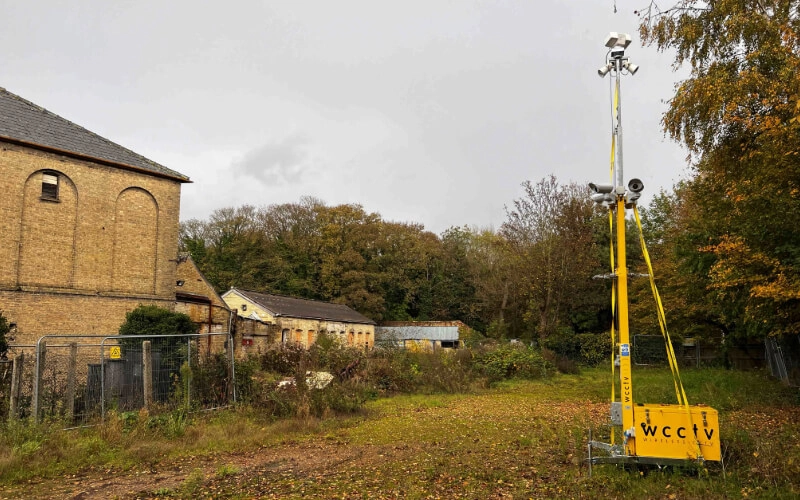
How Vacant Property Insurance Works
Understanding the basis of vacant property insurance, also known as unoccupied property insurance, for both commercial and residential property helps ensure you have the correct protection for the property type you hold.
Generally vacant property insurance covers a property if it is left vacant for around 30 to 60 days minimum. Policies will vary, however, this tends to be the most common scenario where it is required.
Costs for policies will be based on multiple factors and this will be established during the quoting process.
Policies lengths will also differ, however will often be shorter as it is expected that vacancy of a property will be short term. They tend to range between 3 to 12 months, and you will likely be given the option to extend at the end of the policy if needed.
Similar to other insurances, it aims to protect those responsible for the property from the full financial implications that could occur from any property damage or intrusion, including legal costs at times.
It provides a preventative measure that provides you with some financial reassurance and support.
Whether it be a commercial or residential property, having insurance helps prepare for the many security risks faced by vacant properties. However, there are some differences between the two.
Is There a Difference Between Residential and Commercial Vacant Property Insurance?
Essentially, commercial and residential property are two different property types that have two different purposes. Due to this, the insurance requirements will not be the same and insurers treat them separately to ensure both get the necessary coverage that is fit for purpose.
For residential vacant property insurance, this covers individuals’ homes and will likely be cheaper than commercial insurance as properties are smaller and are purposed for personal use and living.
For commercial vacant property insurance, this covers non-residential structures such as office buildings, retail space, and warehouses. These property types are often larger and have more uses, meaning insurance will usually be more expensive.
Under commercial vacant property insurance, vacant properties managed by landlords are also covered by this.
It is important that in both instances that you consider what the use is for the property as this could lead to there being more specific requirements and impact your insurance premium.
What to Consider with Vacant Property Insurance Coverage
Everyone’s worst nightmare is to place a claim with their insurance to find out it is not covered by your policy.
Insurance coverage will vary depending on the company and chosen policy, however understanding the general inclusions and exclusions in vacant property insurance can include.
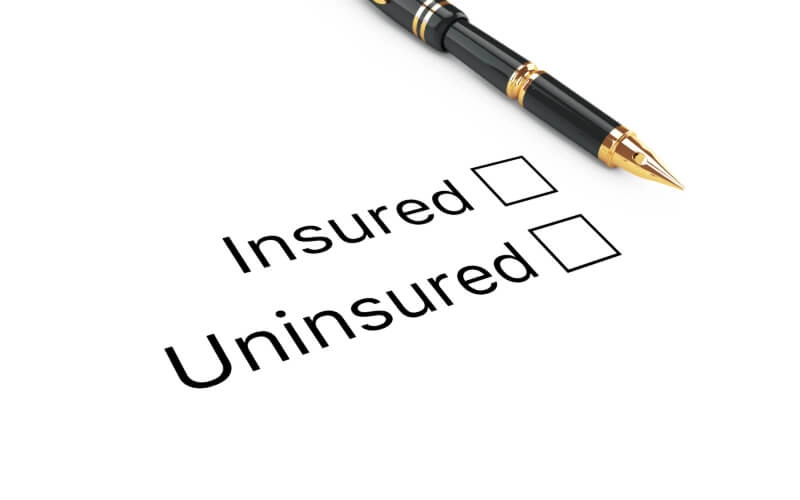
What a Residential Vacant Property Insurance Policy Covers
For residential vacant property insurance, these are the typical inclusions available for coverage with policies:
- Theft or attempted theft
- Vandalism
- Fire, flooding and storms
- Water or oil bursts from pipes
- Impact from a car collision or a falling object
What a Residential Vacant Property Insurance Policy Does Not Cover
These are the exclusions to expect from residential vacant property insurance:
- Burglary through unforced entry
- Renovations or building works
- Builders and contractors
- Damage caused by poor maintenance
What a Commercial Vacant Property Insurance Policy Covers
For commercial vacant property insurance, these are the typical inclusions available for coverage with policies:
- Vandalism and theft
- Property owners’ liability - Covers risk to any third parties
- Subsidence
- Environmental damage such as fire, lightening, explosions, earthquakes and storms
- Any fallen trees
What a Commercial Vacant Property Insurance Policy Does Not Cover
These are the exclusions to expect from commercial vacant property insurance:
- Wear and tear
- Theft with no forced entry
- Damage from any vermin or pests
- Loss of rent
- Contents such as any property left behind from tenants
Factors Insurance Companies Consider and Questions to Expect
Policy quotes and courage are based on multiple factors and insurers will establish this via various questions that you will likely be asked to answer prior to a quote being provided to you.
There are several factors insurers will consider for any vacant property:
- Length of vacancy
- Property security
- Location
- Property value
- Maintenance level of the property
- Your claims history and risks previously faced by the property
Property insurers will consider these factors with your vacant property to work out the risk factor with both you as the policyholder and the property itself. To gain this information, they will ask questions like ‘Have you made any previous claims?’, ‘What is the postcode of your property?’ and ‘What security measures have you got in place at the property?’.
During the quoting process, you need to answer the questions honestly to ensure the policies presented match your requirements and will cover you as needed. Not completing the questions correctly could lead to invalid policies being presented to you and claims not being accepted due to this.
How to Lower Your Vacant Property Insurance
Property insurance policies can vary in price, even for policies that have the same coverage. Where savings can be found, this helps reduce costs for you and allows for that excess fund to be utilised elsewhere or as you wish.
There are five ways you can reduce your property insurance premiums, both with commercial and residential property:
Improve the Security of Your Vacant Property
Taking steps to improve the security of your vacant property can reduce the cost of your insurance.
Adding in CCTV monitoring, burglar alarms, deadbolts and keyholding services can help reduce your premium as it allows insurers to understand there is protection in place to secure the vacant property.
There are various security measures available to support vacant property, so consider the best one for you.
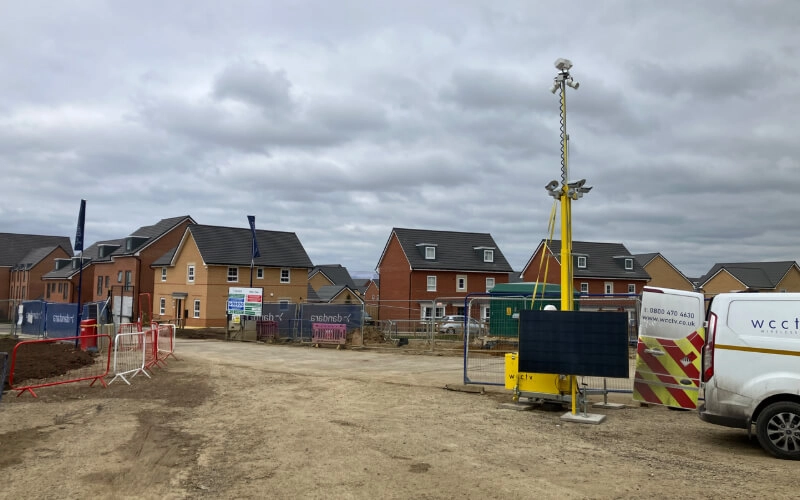
Increase Your Voluntary Excess
With any policy you will be asked to provide a voluntary excess which represents the amount of money you would volunteer to pay if you place a claim with the insurer.
This figure is your decision completely, however, often the higher the voluntary excess you provide, the lower the cost of the insurance policy monthly or annually.
You will need to keep in mind that if a claim is required that you will be expected to pay that voluntary excess, along with other payments such as the compulsory excess if they have one set with the policy.
Make sure that you would be able to cover this cost before increasing it.
Shop Around For Your Insurance
As much as sticking with the same insurer can be simpler or picking one from an established company seems most sensible, it is best to shop around.
There can be big differences in costs for the same or similar policies, so if you are looking to save, take the time to explore your options.
Utilise the comparison websites to gain various quotes all in one go.
Do Not Over-insure a Vacant Property
Vacant properties stand for properties without any occupancy or household items, and you need to keep this in mind.
It is easy to over-insure, especially if you have only experienced standard property insurance, however, keep in mind there should be no belongings in the property and therefore less to cover.
Be as accurate as possible when providing value estimates as this could reduce your costs.
Pay Insurance Premiums Annually if Possible
With most insurance policies you will be given the option to pay monthly or annually.
If possible, try to pay this annually as this will reduce insurance premium costs for you.
Before paying annually, consider the factors involved in the vacant property such as length of vacancy to ensure you are not committing to a policy that does not suit you.
The Claims Process on Your Vacant Property Insurance
The claims process for each insurer will differ, therefore it is recommended that you take the time to understand the process of your provider. This ensures that any claims can be implemented quickly and processed smoothly.
There are three essential steps that you tend to need to follow:
- Contact the police if you have been a victim to theft, damage or suspicious activity
- Speak to the claims team of your provider
- Make the claim using the process in place
Taking the Next Steps to Securing Your Vacant Property
Implementing vacant property insurance is one part of the process in securing your property. Prior to this you need to consider the security measures in place to prevent and deter any crime and protect the physical property itself.
Find out how WCCTV can support your vacant property’s security by getting in touch today!
